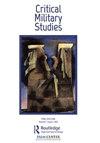通过一个全国性的保守派平台重建国防?波兰准军事组织案
Q1 Arts and Humanities
引用次数: 2
摘要
摘要继乌克兰战争和其他非军事性质的安全挑战之后,波兰记录了新的重新军事化进程,志愿准军事组织的复兴就是一个有力的例子。在关于国防发展的其他性别盲的公共话语中,后者被顺带地描述为与父权制性别关系和不自由的“反性别”政治有着内在的纠缠,反映了关于军事化的主导女权主义框架,这是一个巩固性别不平等的过程。本文通过对准军事组织的广泛实地调查,通过参与、CMS驱动的方法和框架,探讨了波兰的性别与准军事关系。它认为,尽管准军事运动有着全国性的保守纲领,但国防实践和理念的重大复兴进程仍在实地进行。这篇论文从三个相互关联的层面追溯了她们:女性在运动中的成长和基本上没有争议的存在;在国防领域民间社会的双重项目中,重新评估民间妇女的活动路线;以及基本上平等的组织文化,男女都参与其双重的公民军事实践,从而进一步破坏了国防与军事男子气概之间的联系。在这种背景下,该论文认为,准军事组织的男性主导特征主要是由与波兰社会再生产女性化有关的社会结构因素推动的,该运动认为这些因素没有问题,不属于其议程。该论文为性别和CMS文献提供了分析支持,认为揭示性别复杂性和不太可能的地点的变化可以帮助更富有成效的女权主义批评形式。本文章由计算机程序翻译,如有差异,请以英文原文为准。
Regendering defence through a national-conservative platform? The case of Polish paramilitary organizing
ABSTRACT Following the war in Ukraine and other security challenges of non-military nature, Poland has recorded novel processes of re-militarization, with the resurgence of volunteer paramilitary organizing constituting one potent example. In the otherwise gender blind public discourse on defence developments, the latter were incidentally narrated as intrinsically entangled with patriarchal gender relations and illiberal ‘anti-gender’ politics, reflecting dominant feminist frameworks on militarization as a process entrenching gender inequality. Drawing from extensive fieldwork with paramilitary organizations, this paper explores the gender-paramilitary nexus in Poland through engaged, CMS-driven methods and frameworks. It argues that despite the paramilitary movement’s national-conservative platform, significant processes of regendering of the practice and idea of defence are nevertheless occurring on the ground. The paper traces them on three interconnected planes: women’s growing and largely uncontested presence in the movement; the revaluing of civilian-feminine lines of activity within the sector’s dual project of civil society in defence; and the largely egalitarian organizational culture, which engages both men and women in its dual, civic-martial practices, thus further destabilizing the link between defence and military masculinity. In this context, the paper suggests that the male-dominated character of paramilitary organizing is fuelled predominantly by socio-structural factors related to the feminization of social reproduction in Poland that the movement sees as unproblematic and external to its agenda. Lending analytical support to gender and CMS literature, the paper argues that uncovering gendered complexity and change in unlikely sites can aid more productive forms of feminist critique.
求助全文
通过发布文献求助,成功后即可免费获取论文全文。
去求助
来源期刊

Critical Military Studies
Arts and Humanities-History
CiteScore
1.90
自引率
0.00%
发文量
20
期刊介绍:
Critical Military Studies provides a rigorous, innovative platform for interdisciplinary debate on the operation of military power. It encourages the interrogation and destabilization of often taken-for-granted categories related to the military, militarism and militarization. It especially welcomes original thinking on contradictions and tensions central to the ways in which military institutions and military power work, how such tensions are reproduced within different societies and geopolitical arenas, and within and beyond academic discourse. Contributions on experiences of militarization among groups and individuals, and in hitherto underexplored, perhaps even seemingly ‘non-military’ settings are also encouraged. All submitted manuscripts are subject to initial appraisal by the Editor, and, if found suitable for further consideration, to double-blind peer review by independent, anonymous expert referees. The Journal also includes a non-peer reviewed section, Encounters, showcasing multidisciplinary forms of critique such as film and photography, and engaging with policy debates and activism.
 求助内容:
求助内容: 应助结果提醒方式:
应助结果提醒方式:


